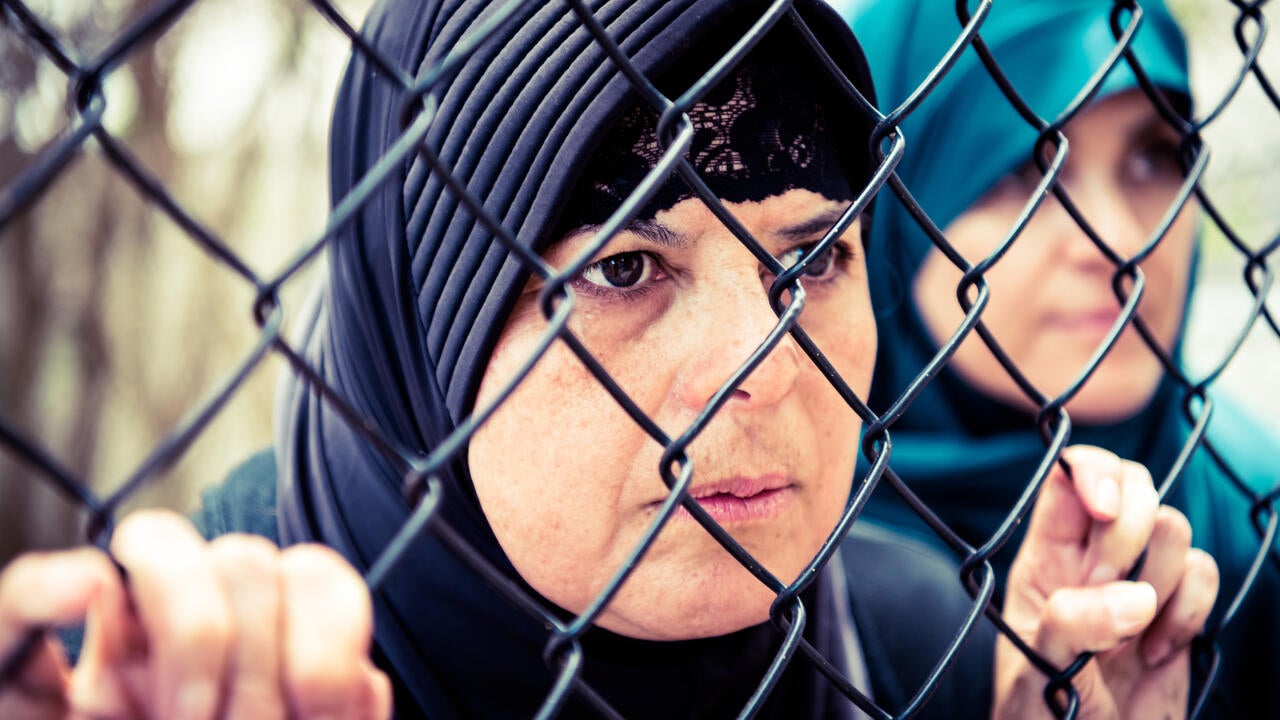
Refugees face a longer road to resettlement during the pandemic
COVID-19 is creating extra hurdles for privately sponsored refugees

COVID-19 is creating extra hurdles for privately sponsored refugees
By Wendy Philpott Faculty of ArtsOver the past few months, the fallout of COVID-19 has affected varying communities differently and disproportionately. According to new research from Waterloo’s Faculty of Arts, vulnerabilities associated with refugee groups, specifically, have been amplified and exacerbated due to global lockdowns.
“The refugees who have been selected for resettlement are being pushed back, which is prolonging their trauma,” Ilcan says. “Many are stranded. Some have been living in or forced to return to overcrowded refugee camps. Others are waiting in hotels near airports and transit centres. Still, others are searching for shelter after relinquishing accommodation prior to their cancelled departure.”
According to Ilcan’s research, the number of refugees in need of resettlement worldwide is estimated to surpass 1.44 million in 2020, and 40 per cent of them are Syrians. Waterloo region is home to approximately 850 government-assisted and 350 privately sponsored Syrian refugees.
The sponsorship program depends heavily on significant commitment from citizen groups such as faith-based communities, families and other caring collectives who support families (socially, culturally and economically) during their first year after arriving in Canada.
However, Ilcan says that “one year is simply not long enough for a sponsored family to learn the language, find a job and get resettled in a new community.” Her co-authored paper Private Sponsorship in Canada: The Resettlement of Syrian Refugees in the Kitchener-Waterloo Region concludes that improvements in the areas of prioritizing reunification of families, strengthening partnerships with local community organizations and better educating private sponsors on the demands of the role need to be made.
“In our study, only a small number of Syrians reported that their sponsors were able to connect them to larger social networks that would increase their chances of finding employment,” the research indicates. “In fact, most (over 70 per cent) reported facing structural and systemic barriers when seeking employment — including those who had established professional careers.”
The main barriers for many newcomers are English language competency and unrecognized educational and professional credentials.
Despite these amplified challenges, Ilcan notes that local community groups and organizations continue their generosity to these newcomers. “We know that this care and support is vital to enhancing their resettlement experiences and sense of belonging to the KW community.”
However, for refugees who recently arrived in Canada or who manage to travel here in the near-term, the pandemic will likely have long-term implications on their resettlement, Ilcan emphasizes. Safety measures such as physical distancing directly impact access to critical opportunities like English language learning and employment prospects.

Read more
To meet our AI ambitions, we’ll need to lean upon Canada’s unique strengths

Read more
Researchers awarded funding to investigate ecology, climate change, repatriation, health and well-being through cultural and historical lens

Read more
Meet five exceptional Waterloo graduate students crossing the convocation stage as Class of 2025 valedictorians
The University of Waterloo acknowledges that much of our work takes place on the traditional territory of the Neutral, Anishinaabeg, and Haudenosaunee peoples. Our main campus is situated on the Haldimand Tract, the land granted to the Six Nations that includes six miles on each side of the Grand River. Our active work toward reconciliation takes place across our campuses through research, learning, teaching, and community building, and is co-ordinated within the Office of Indigenous Relations.